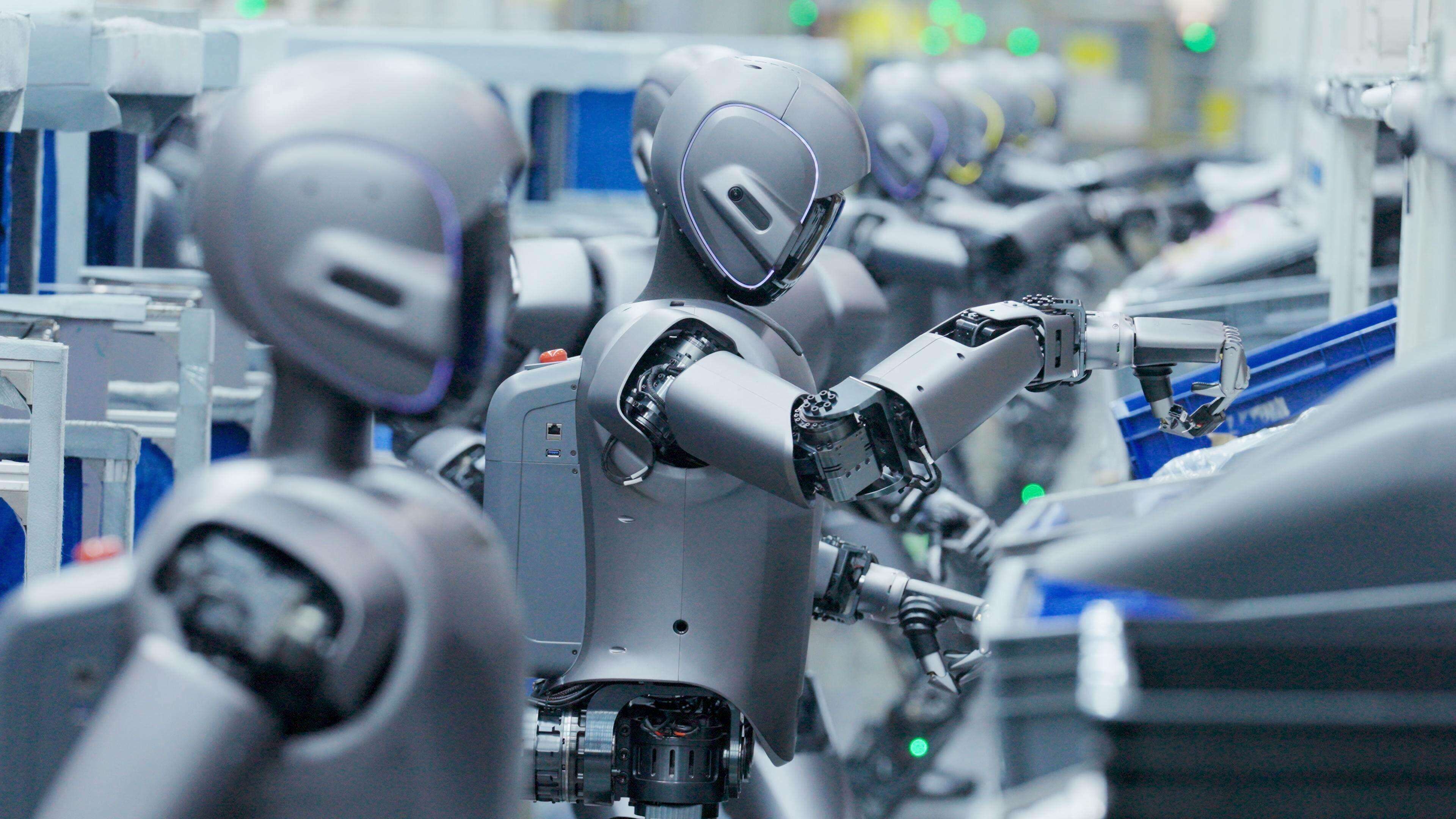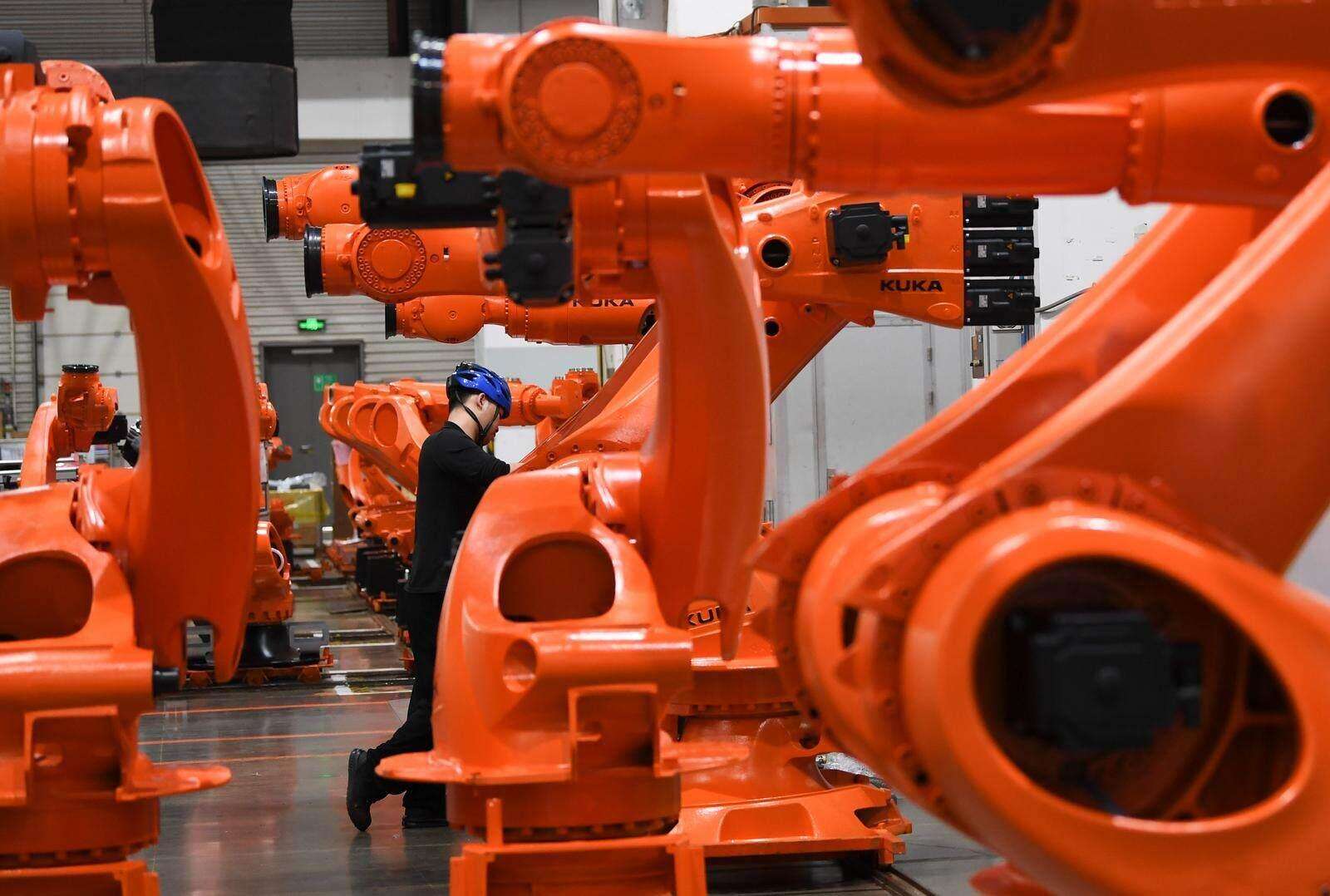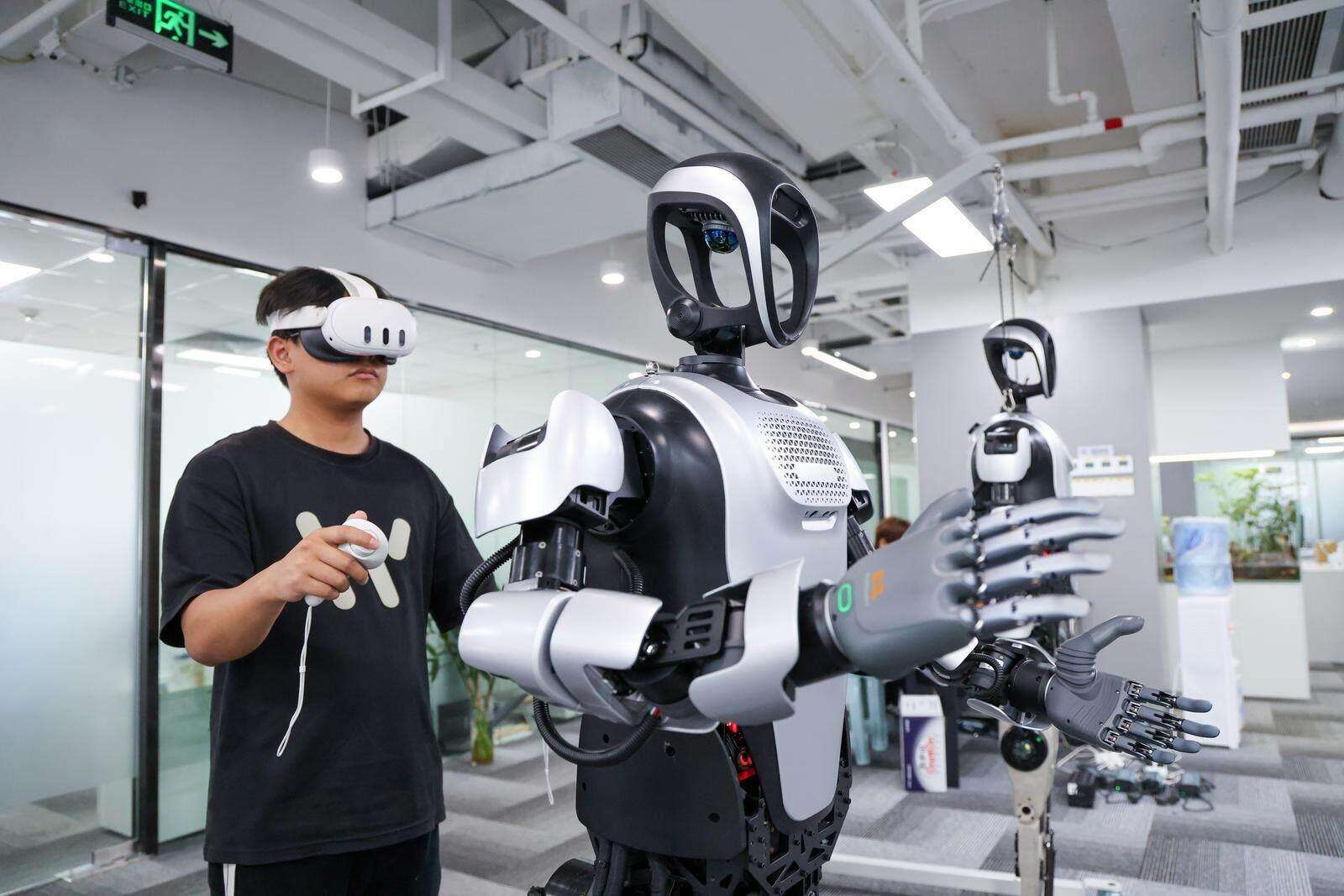
Guangdong has become a frontrunner in China's artificial intelligence (AI) and robotics industries, boasting the nation's top figures in the comprehensive computing power index, the number of AI "little giant" enterprises, and industrial robot production. On June 6th, the Guangdong Artificial Intelligence and Robotics Industry Alliance will be officially launched in Guangzhou, accompanied by the signing of the Guangdong Intelligent Industry Fund, which targets a scale of 10 billion yuan.

According to the Department of Industry and Information Technology of Guangdong Province, the province's core AI industry is expected to exceed 220 billion yuan in 2024. Industrial robot production has reached 246,800 units this year, maintaining its number-one national ranking for five consecutive years since 2020. Major platforms, such as a provincial-level embodied intelligent robot innovation center, have been established to support the formation of industrial clusters and upgrades.

Leading enterprises are rapidly advancing practical applications. Humanoid robots developed by UBTECH and Leju have already been deployed in corporate settings. Drones from DJI and XAG are facilitating logistics in mountainous and rural areas. Tencent Cloud's Large Language Models (LLMs) have been applied in over 30 industries, and Seewo's educational AI models are now serving more than 2,000 schools.

Chen Feng, General Manager of KUKA China, noted that their industrial AI assistant "Xiaoku," built on large model technology, has significantly lowered the threshold for robot applications. "We are now focusing on embodied intelligence to pioneer a new paradigm for smart factories," he said. Zhang Aimin, head of the humanoid robot team at GAC Group, shared, "Our humanoid robots will enter small-batch production by 2026 and are expected to be introduced into household scenarios in the future."
Local governments are also scaling up support. Shenzhen aims to cultivate 10 enterprises with annual revenues exceeding 10 billion yuan and establish 50 application scenarios worth over 1 billion yuan each by 2027. Foshan targets a complete robot system output value of more than 20 billion yuan and total industrial revenue surpassing 200 billion yuan. Zhuhai has launched an 80 billion yuan fund dedicated to advancing new quality productive forces and introduced "computing power vouchers" and "model vouchers" to help businesses reduce costs and boost efficiency. "Our supply chain is 95% based in the Greater Bay Area. We've set up operations in Zhuhai this year and will soon open a branch in Shenzhen," said Ni Hualiang, Chairman of Aoyi Technology. "The region's favorable policies and robust industrial ecosystem are attracting companies from across the country."
Source: Lingnan on the Cloud
“粤字号”AI+人工智能在各应用场景里大显神通
综合算力指数、人工智能“小巨人”企业数量、工业机器人产量等多项指标中国第一,广东在人工智能、机器人领域聚集了一批堪称中国“顶流”的关键技术、场景应用。6月6日,广东省人工智能与机器人产业联盟将在广州成立,目标规模达100亿元的广东省智能产业基金也将同步签约。
广东省工信厅数据显示,2024年广东人工智能核心产业规模超2200亿元,工业机器人年产量达24.68万台(套),自2020年起连续五年全国第一。广东还组建了省级具身智能机器人创新中心等重大平台,支撑产业集聚升级。
一批“顶流”企业正加速推进应用落地:优必选、乐聚等人形机器人已在企业“上岗”,大疆、极飞的无人机助力山区与乡村物流,腾讯云大模型已覆盖30多个行业;希沃教学大模型服务超过2000所学校。
库卡中国总经理陈峰介绍,基于大模型技术的工业AI助手“小库”已显著降低机器人应用门槛,“如今我们正发力具身智能领域,打造智能工厂新范式。”广汽人形机器人团队负责人张爱民也表示:“我们的机器人2026年将实现小批量生产,未来将进入家庭场景。”
深圳提出,到2027年打造10家百亿级企业、50个十亿级应用场景;佛山目标整机产值破200亿元,产业营收超2000亿元;珠海则推出总额800亿元的新质生产力基金,并设立“算力券”“模型券”支持企业降本增效。“我们的生产链95%在大湾区,今年落地珠海,不久还将在深圳设分公司。”傲意科技董事长倪华良表示,大湾区的政策红利和产业链优势正吸引企业“奔赴而来”。
文 | 记者 许张超
图 | 资料图
译 | 杨钧雅
英文审校 | 林佳岱
-
Foshan kicks off 2025 Diejiao Dragon Boat Drift Competition
2025-06-01 21:29:09 -
Liede dragon boat parade welcomes Dragon Boat Festival
2025-06-01 21:29:15 -
Dragon boat spirit unites both sides of the Taiwan Strait
2025-06-01 21:29:20 -
FaceToFace|Egyptian translator Hussein Ismail: Guangdong keeps 'jumping' in developing
2025-05-31 21:14:43






